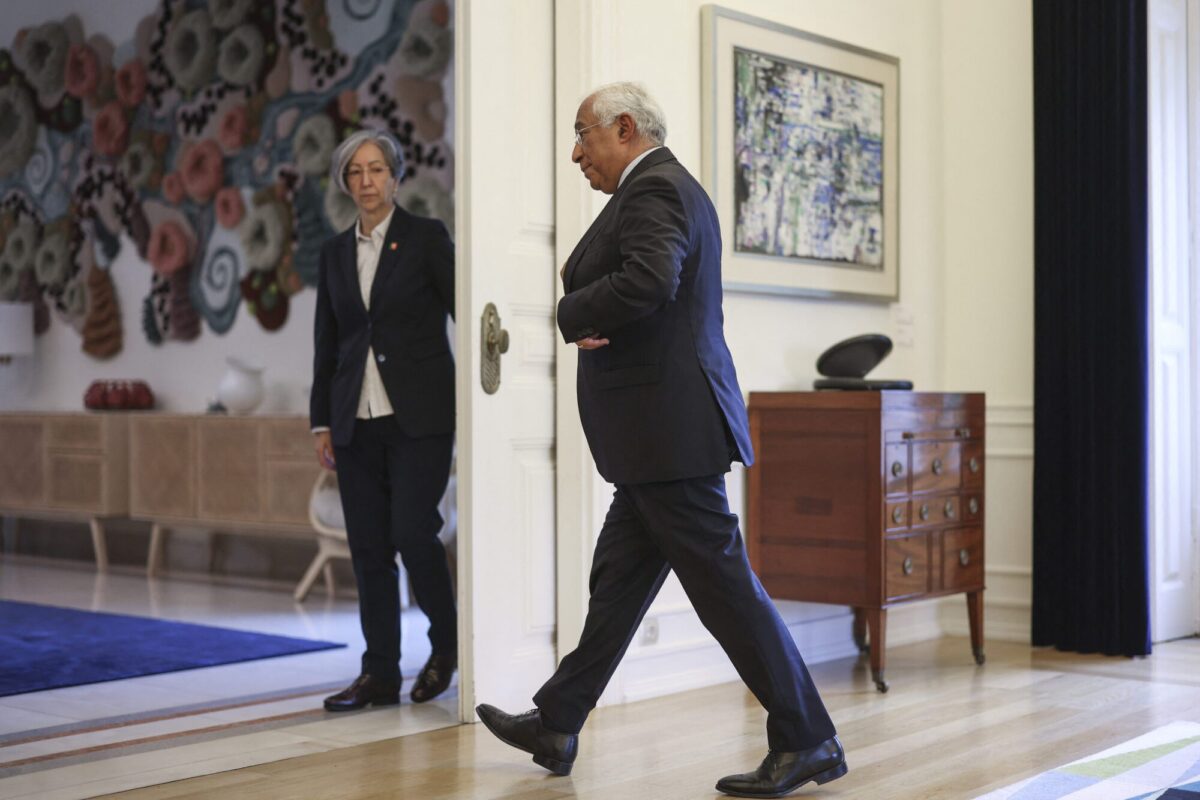
Portuguese Prime Minister Antonio Costa leaves after addressing the nation at Sao Bento Palace in Lisbon on November 7, 2023.
Photo by PATRICIA DE MELO MOREIRA / AFP
Portuguese Prime Minister António Costa, leader of the Socialist party, tendered his resignation to Portugal’s president on Tuesday, November 7th after police raided his official residence amid allegations of corruption relating to a green energy project.
The corruption allegations stem from a large-scale green energy project involving hydrogen in Sines as well as exploration for lithium, the mineral found in most electric batteries, in the north of the country, according to Portuguese media reports.
Costa spoke to the Portuguese people Tuesday, announcing his resignation saying,
It is … my understanding that the dignity of the functions of prime minister is not compatible with any suspicion of his integrity, good conduct, and even less with the suspicion of the commission of any criminal act. Obviously, I have submitted my resignation to His Excellency the President of the Republic.
He went on to state that he would not be seeking the office of prime minister again in any future elections.
Costa went on to say, “This is a stage of life that ends and that I close with my head held high, with a clear conscience and the same determination to serve Portugal and the Portuguese people in exactly the same way as the day I entered here for the first time as Prime Minister.”
The alleged corruption case involves several others along with Prime Minister Costa, including Minister of Infrastructure João Galamba and former Minister of the Environment João Pedro Matos, who both also had their homes raided by police on Tuesday.
The Attorney General’s Office (PGR) went on to confirm that João Galamba and the president of the Board of Directors of the Portuguese Environment Agency were both defendants in the case.
A total of 17 home raids, 5 raids of lawyers’ offices and 20 raids of non-residential properties were conducted as part of the investigation, including spaces used by the prime minister’s chief of staff.
Alongside the politicians and staffers accused of corruption and influence peddling were two directors of the company Start Campus, linked to the construction of a “sustainable data centre” in Sines.
The mayor of Sines Nuno Mascarenhas has also been issued an arrest warrant and a search of the city hall was conducted, with employees made to wait outside during the searches.
Following the resignation of Prime Minister Costa, Portuguese President Marcelo Rebelo de Sousa will now have to decide whether or not to dissolve parliament and call a national election or choose a successor from the Socialists.
The Portuguese president is set to meet with party leaders Wednesday followed by a meeting of the Council of State on Thursday.
Socialists under Prime Minister Costa have been supportive of lithium exploration in various parts of the country, but the projects had been criticised in the past for the low quality of materials and the damage to the local environment deemed to be disproportionate to what was extracted.
The European Union has pushed for countries to ramp up lithium mining and exploration projects in order to lessen the bloc’s dependence on importing the material from China, Africa and South America as part of its so-called green transition.
The Sines hydrogen project, meanwhile, had also been supported by the European Union and saw millions of euros given to advance the H2Sines.Rdam project, meant to facilitate the transport of liquid hydrogen from Portugal to the Dutch port of Rotterdam.
The scandal is also not the first for Prime Minister Costa, although it appears it may be the last. Various scandals have led to the resignation of two ministers and 11 secretaries of state in just 16 months, some of which were also linked to alleged corruption.
The end of the Costa era is significant in that he was one of the longest-serving heads of government in the European Union, winning three elections since his initial election victory in 2015.
